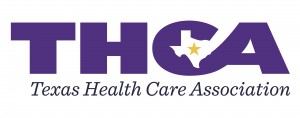TX Nursing Home Providers to House Budget Conferees: Fully Fund Medicaid Rate to Government-Recommended Levels to Cover the Actual Cost of Seniors’ Care
For Immediate Release
April 23. 2015
Contact: Rebecca Reid
410-212-3843
TX Nursing Home Providers to House Budget Conferees: Fully Fund Medicaid Rate to Government-Recommended Levels to Cover the Actual Cost of Seniors’ Care
Statewide Baselice Poll Indicates Eighty Percent of Voters Support Increasing Medicaid Funding for Texas’ Frail Elderly Who Depend on Nursing Home Care
(Austin, TX) – The Texas Health Care Association (THCA) today urged newly appointed state House of Representatives budget conferees to fully fund the Medicaid rate for skilled nursing care, following an April 2015 statewide poll of nearly 1,000 Texas voters that showed eighty percent of respondents say they are in favor of increasing Medicaid for nursing home care for elderly beneficiaries.
“The current Medicaid rate for nursing care reimburses nursing homes about six dollars an hour,” said Kevin Warren, President of THCA. “We respectfully urge the Texas House of Representatives’ key decision-makers on the final state budget to fully fund the Medicaid rate so that it covers the actual cost of caring for our seniors requiring 24 hour nursing care.”
Appointed House budget conferees announced late yesterday include: Chairman of the House Appropriations Committee, Rep. John Otto, R-Dayton, Vice Chair of Appropriations; Rep. Sylvester Turner, D-Houston; Appropriations Committee members: Rep. Sarah Davis, R-West University Place, Larry Gonzales, R-Round Rock and Trent Ashby, R-Lufkin.
“Currently, neither the House nor Senate budget provides for additional funding of the Medicaid rate, which by the state government’s own numbers indicates a $343 million shortfall,” noted Warren. “Nursing home providers are challenged with offering competitive wages in order to retain qualified staff. Chronically strained facility budgets can compromise providers’ ability to provide consistency in care, upgrades to aging facilities and implementation of state-of-the-art technologies. Texas’ Medicaid rate, which hovers near the bottom nationally, should be increased to an adequate level.”
A statewide Baselice & Associates Texas April 2015 voter survey polled 949 voters, forty-one percent who say they most frequently vote for Republican candidates verses thirty-four percent who typically vote for Democrats. They responded to the following questions:
- 1. As the Texas state legislature considers the next budget, do you think that ensuring adequate Medicaid funding to care for low income seniors in nursing homes is just as important as other top priorities like transportation, water, and education?
88% said yes
- 2. Nearly seventy percent of nursing home residents in Texas receive care paid for under Medicaid, the state health insurance program for the poor and indigent. According to Texas state government’s own funding methodology, Medicaid for nursing home care is currently underfunded by three hundred and forty-three million dollars. Do you favor or oppose the legislature fully funding Medicaid for low income seniors in nursing homes at the levels the state itself says is needed to meet the cost of providing this care?
77% Favor
- 3. It is estimated that Medicaid pays about six dollars per hour a day for the care of each low income senior in a nursing home. Do you favor or oppose increasing Medicaid for elderly beneficiaries in nursing homes?
80% Favor
“The responses from the survey are indicative of the commitment Texans want to see in in providing for our seniors,” said Warren. “Every day dedicated caregivers are taking care of our aging Texans 24/7, while working to support themselves and their families. Texas must honor our greatest generation of seniors and those who provide compassionate care for them by providing the appropriate resources to achieve the best health outcomes and quality of life.”
# # #
About THCA
Founded in 1950, the Texas Health Care Association (THCA) is the largest long-term care association in Texas. THCA’s membership is comprised of several hundred licensed non-profit and for-profit skilled nursing facilities (SNFs), specialized rehabilitation facilities and assisted living facilities in Texas. These facilities provide comprehensive, around-the-clock nursing care for chronically ill or short-term residents of all ages, along with rehabilitative and specialized medical programs. THCA also represents more than 190 long-term care businesses that provide products and services to the state’s approximately 2,850 nursing homes and assisted living facilities. To learn more, visit https://txhca.org/ or connect with THCA on Facebook, Twitter and YouTube.


